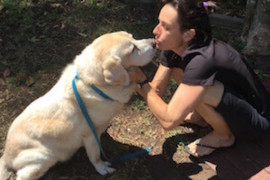
Dog Bites and Breed-specific Legislation
(inkl. USt.)
Why dogs bite is a complex issue yet the solution is often portrayed as being very simple. Behaviour is influenced by a very elegant interplay of genetic predisposition, learning from previous experiences and the environment in which the animal lives. All of these factors need to considered together but yet rarely are. The dog (or breed of the dog) is often blamed for the dog bite but it is not that straightforward.
Dog attacks, and methods to prevent their occurrence, appear regularly in the media. Governments also react to public opinion. Unfortunately media reports are often emotive and lacking in factual information, and politicians are not necessarily well versed in the scientifically based evidence on the most appropriate way forward. This makes many measures not only ineffective in reducing dog bites but also difficult to implement. Yet many Councils declare dogs as being dangerous and this has implications not only for the dog but also the owner and the community.
Recording from 26.06.2018

BVSc (Hons) MRCVS MA (Hons) FANZCVS DACVB DECAWBM FAVA, Registered Veterinary Specialist, Behavioural Medicine
Dr Kersti Seksel is a boarded veterinary specialist in behavioural medicine in the Australian, American and European Colleges and Adjunct Associate Professor at Charles Sturt University, Wagga Wagga NSW. She is a Fear Free Certified Professional.
She is fascinated by animals and why they do what they do. She is passionate about helping people understand animals better so she can improve the lives of people and their pets.
Kersti pioneered Puppy Preschool® and Kitten Kindy® classes, teaches the distance education course in Behavioural Medicine for CVE (University of Sydney). She presents at conferences nationally and internationally, runs webinars, writes text book chapters, has written a book Training Your Cat, is a regular presenter on radio and TV and is a consultant on VIN.



